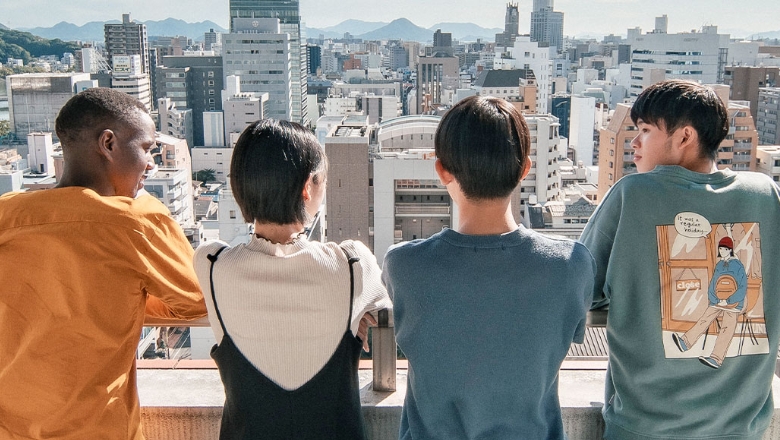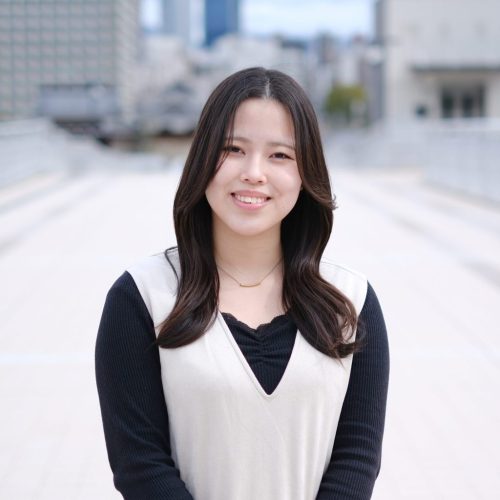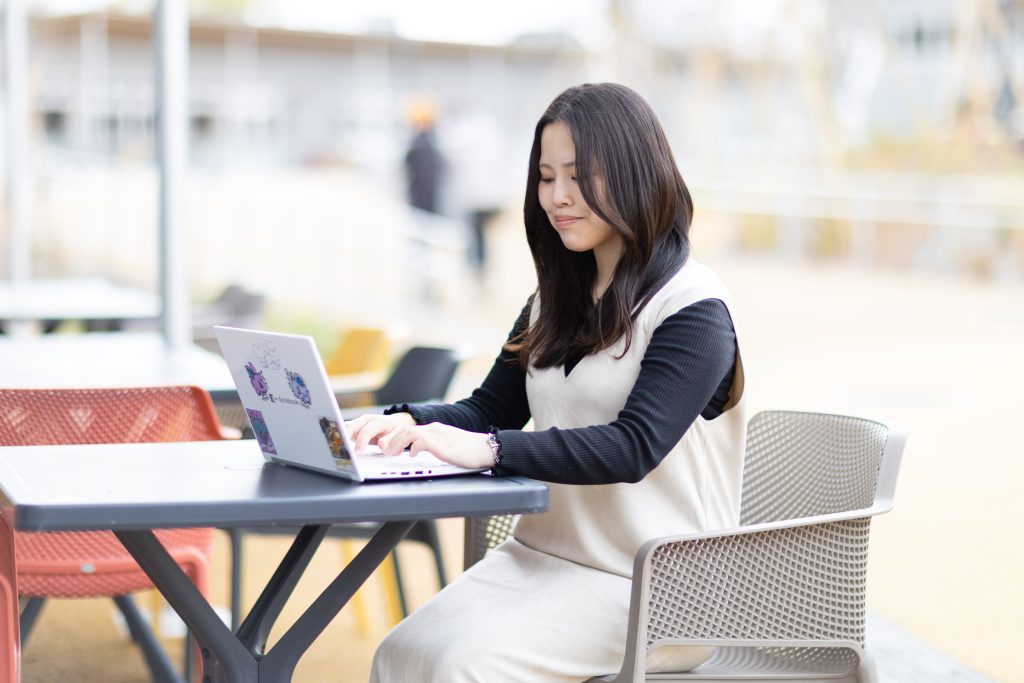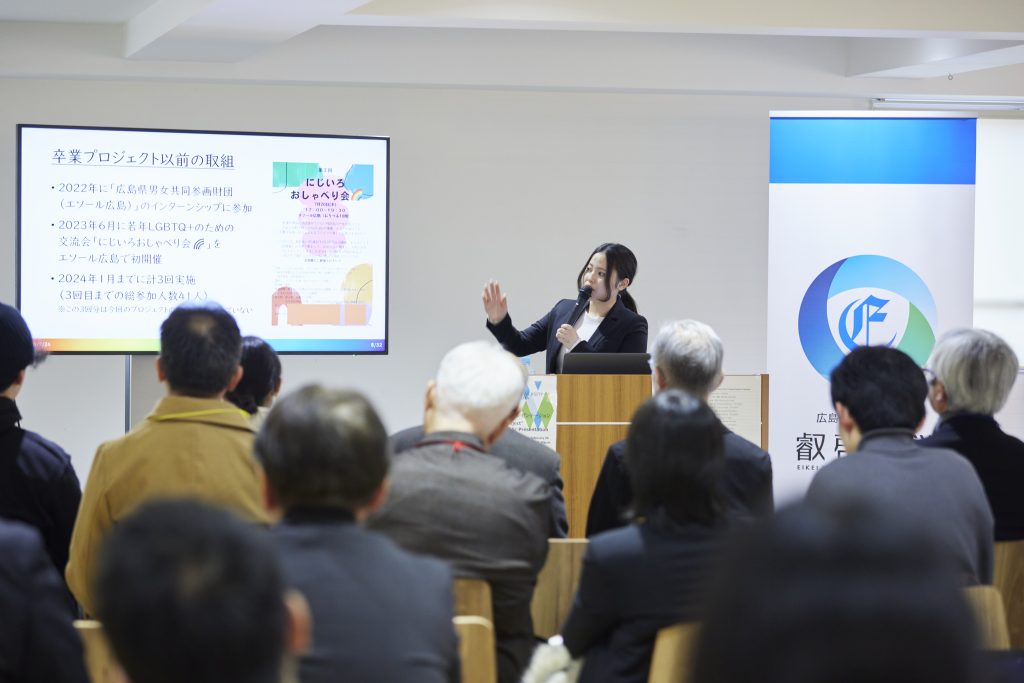About
Alumni


MITANI Hinako
March 2025 Graduation
Updated March 2025
Four Years of Learning to Accept Myself and Love Who I Am—Even If I Don’t Fit into “Normal”
When I first entered Eikei University of Hiroshima, I didn’t have a clear dream or career path in mind. However, I had a strong desire to learn about topics like gender, LGBTQ+, and feminism—areas I had a vague interest in—and to gain the skills needed to contribute to solving the social issues surrounding them. Having dropped out of high school and entered university after more than a year-long gap, I also held a quiet hope that maybe, because I’m not “normal,” there’s something unique I can do.
I chose Eikei University of Hiroshima because I was deeply drawn to its unconventional approach to learning. After leaving a prestigious high school due to a mismatch with its culture, I was looking for a place where I could gain practical knowledge and skills—not through one-way lectures in large halls or test-centered education, but through hands-on learning. Discovering Eikei University of Hiroshima by chance felt like finding the ideal path, and I decided to enroll.
At the beginning, I never imagined I would start a project of my own. But through my studies and experiences at Eikei University of Hiroshima, that mindset changed dramatically. Learning about various social issues and the solutions being implemented around the world sparked a desire in me to take action. The influence of my peers was especially powerful—they were launching their own projects, confronting social challenges, and actively engaging with the world. Being in that environment made me feel a growing urge to do something myself.

The classes that had the greatest impact on me were the Project-Based Learning and the Experiential / Practical programs. In the Project-Based Learning, I learned foundational approaches to tackling social issues and developed competencies like foresight and strategy. Passion alone isn’t enough—without the right methods, a project can’t succeed. The internship I participated in through the Experiential / Practical program also had a major influence on my thinking and career direction. I had the opportunity to work with organizations in fields I was interested in, and the connections I made there led to future project collaborations. No matter the project, there’s a limit to what one person can do alone. Through the internship, I built relationships with like-minded individuals and developed global collaboration —one of the most valuable assets I gained during university.

Scenes from the public presentation of the Degree Project
After graduation, I’ll be working in a different industry from the projects I’ve pursued so far. I hope to explore new ways of contributing to society through this new environment. I also want to continue being involved in the project I started during university—not as a personal achievement, but as an ongoing commitment.
When people think about solving social issues, they may imagine dedicating themselves to a single project. But I believe it’s possible to balance social contribution through work and personal engagement with social issues. I want to continue developing myself and taking action with both of these pillars in mind.
To future students and juniors: even if people call you a “try-hard” or say you’re just following trends—even if you think that about yourself—please don’t hesitate to pursue what interests you. No matter the outcome, starting something will always reveal something new. Even if you stumble along the way, it’s never a waste. University is a rare time when you can challenge yourself freely. Don’t worry about how others see you—embrace your university life wholeheartedly.
